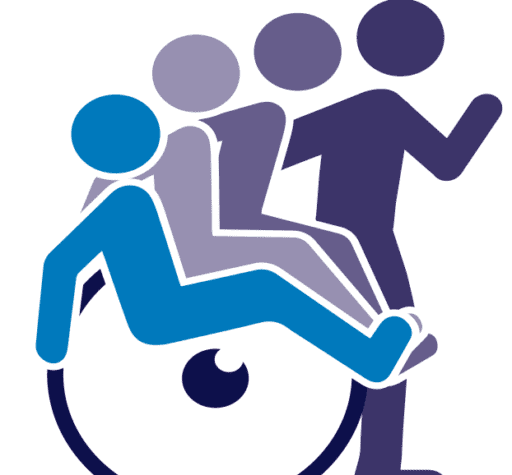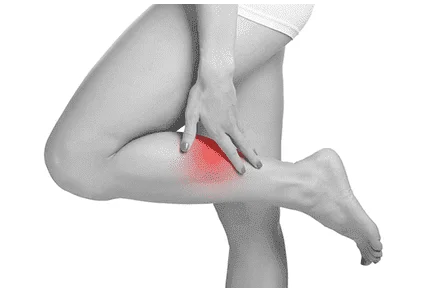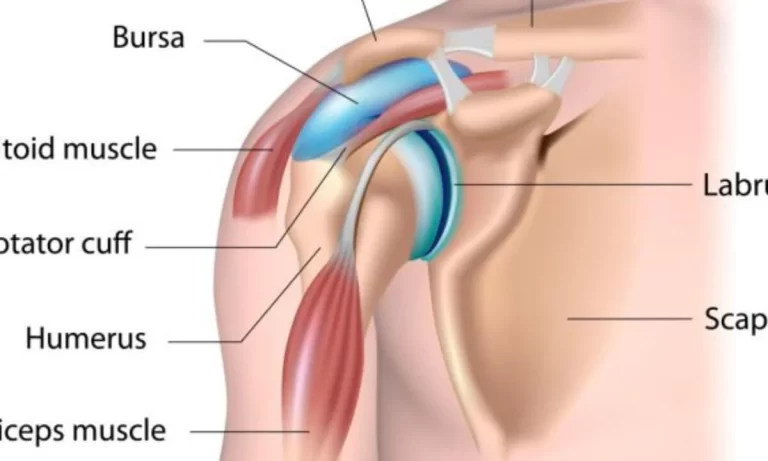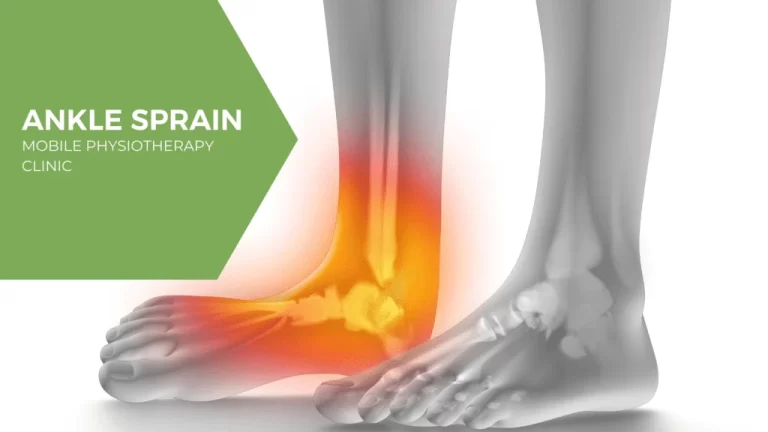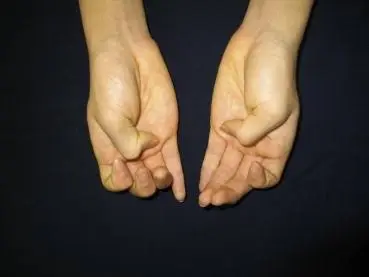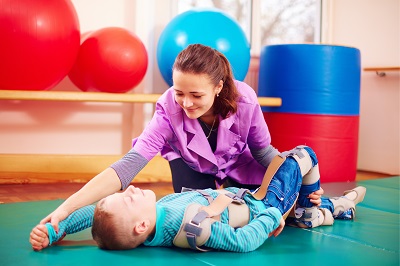Muscle Twitching
Table of Contents
What is Muscle Twitching?
There are many different causes of muscle twitches, including stress, caffeine overuse, poor nutrition, exercise, and medication adverse effects. Many people have twitches in their thumb, calf, or eyelid muscles. Usually, these twitches subside after a few days. They frequently have to do with tension or worry.
Nutritional deficits and other medical disorders can cause minor spasms of the muscles. However, more extreme twitching may indicate more significant medical issues, such as nervous system disorders.
Another name for muscular twitching is muscle fasciculation. Tiny muscular contractions are a part of twitching. Your nerves regulate the fibers that make up your muscles. You may have cramps in your muscle fibers due to nerve stimulation or injury.
The majority of muscle twitches are insignificant and don’t warrant worry. They could sometimes point to a problem with the neurological system, in which case you should visit your physician.
Causes of Muscle Twitching
Causes of Muscle Twitching Several circumstances can bring on twitching of the muscles.
- Physical activity. Lactic acid builds Trusted Source in the muscles utilized during exercise. Usually, it affects the back, arms, and legs.
- Stress and anxiety. In addition to various physical manifestations of mental health disorders, stress, and worry can result in what is commonly referred to as a “nervous tic.” Any muscle in the body might be impacted by them.
- Nutrient deficiencies. Muscles in any area of the body might twitch if they consume excessive amounts of coffee and other stimulants.
- Dehydration. Muscle spasms can result from inadequate intake of specific nutrients, especially in the hands, calves, and eyelids. Vitamin B, calcium, and vitamin D deficits are common forms of dietary deficiencies (Trusted Source).
- Nicotine. Particularly in the body’s bigger muscles, dehydration can result in twitching and tightness of the muscles (Trusted Source). The body, arms, and legs are among them.
- Irritation. Particularly in the legs, cigarette usage, and other tobacco products can induce twitching in the muscles.
- Adverse reactions to certain drugs. diverse medication responses, including those from corticosteroids and estrogen tablets, can cause spasms in the muscles. The hands, arms, or legs can twitch.
- Electrolyte imbalances. Muscle twitches may be caused by electrolyte imbalances (Trusted Source). This can be the result of severe activity, profuse perspiration, or fluid loss from diarrhea or vomiting.
- Not getting enough sleep. This may change the amounts of certain neurotransmitters, perhaps resulting in muscular spasms.
Most of these frequent causes of muscle spasms are mild ailments that are simple to treat.
However, if you believe that your medicine is the source of your muscle twitches, you should consult your doctor.
If you think you could be lacking in any nutrients, you should also get in touch with your physician.
More Serious Causes
Certain lifestyle choices and mild illnesses can cause most muscle twitches, but more significant factors can induce certain muscle spasms.
These spasms of the muscles are frequently associated with disorders of the neurological system, encompassing the brain and spinal cord.
They could harm the nerves that supply your muscles, causing twitching. Among the uncommon yet dangerous conditions that can cause twitches in the muscles are:
Muscular dystrophies
These are a set of hereditary illnesses that deteriorateTrusted Source gradually builds up the muscles. They may result in twitching of the shoulder, hip, and facial muscles.
Amyotrophic lateral sclerosis (ALS)
ALS, sometimes called Lou Gehrig’s disease, results in the death of nerve cells. Although the twitching can affect any muscle in the body, it often starts in the arms and legs.
Spinal muscular atrophy
This illness impairs the spinal cord’s motor nerve cells, which has an impact on the ability to govern muscular movement. It may result in tongue twitch.
Isaac’s syndrome
This has an impact on the neurons that fire up the muscles, causing them to twitch often. Most frequently, the arm and leg muscles experience spasms.
Chronic kidney disease (CKD)
Muscle spasms may result from CKD’s alteration of the body’s fluid and electrolyte balance
Myopathy
This neuromuscular condition affects how the muscle fibers operate, which can cause twitching, rigidity, and cramping.
Serotonin syndrome
When serotonin levels in the body are high, a disease known as this one develops. It is frequently brought on by taking specific drugs, and it is linked to several dangerous symptoms, such as muscular spasms.
Neuropathy
This ailment stems from nerve injury, causing numbness, discomfort, and twitching in the muscles, particularly in the hands and feet.
Hoffmann syndrome
The symptoms of this particular kind of hypothyroid myopathy include severe spasms and weakening of the muscles. Usually, the mouth, arms, and legs are affected.
Usually not a medical emergency, although twitching of the muscles might be a sign of a serious ailment.
Schedule a visit with your physician if your twitching turns into a persistent or chronic pr
Risk factors of Muscle Twitching
- Not enough stretching.
- Muscle fatigue.
- Exercising in extreme heat (heat cramps).
- Dehydration.
- Electrolyte imbalance (having too many or too few salts and minerals like potassium, magnesium, and calcium, in your body).
- Stress.
- Too much high-intensity exercise.
Diagnosing The Cause Of Muscle Twitching
You’ll talk about:
- When your muscles start to twitch
- where they started
- how often do they happen
- how long do they last
- And any other symptoms you might be having
When your muscles started to twitch, where they started, how often they happened, how In addition, your physician will do a physical examination and review your medical records.
When your muscles started to twitch, where they started, how often they happened, how If your doctor believes there may be an underlying cause for your twitching muscles, they will probably request specific diagnostic tests.
They may order:
- When your muscles started to twitch, where they started, how often they happened, how blood tests to assess thyroid function and electrolyte level
- When your muscles started to twitch, where they started, how often they happened, how an MRI examination
- When your muscles started to twitch, where they started, how often they happened, how a CT scan
- When your muscles started to twitch, where they started, how often they happened, how To evaluate the condition of the muscles and the nerve cells that regulate them, using electromyography.
When your muscles started to twitch, where they started, how often they happened, and how Your doctor can identify the reason behind your muscle twitches with the use of these diagnostic tests.
A major underlying medical ailment might be the reason behind your chronic and ongoing muscular twitches.
Your long-term prognosis and treatment choices can frequently be enhanced by early action.
Preventing Muscle Twitching
When your muscles started to twitch, where they started, how often they happened, and how Twitching of the muscles isn’t always avoidable.
However, you may take the following actions to reduce your risk:
Eat a balanced diet
When your muscles started to twitch, where they started, how often they happened, and how To ensure that your diet is balanced, heed these tips:
Consume raw fruits and vegetables.
Consume whole grains to get your energy from
Eat a reasonable quantity of protein. Aim to obtain the majority of your protein from lean foods like tofu and poultry.
Get adequate sleep
To maintain their health, most individuals need to sleep for 7 to 9 hours per night (Trusted Source).
Sleep allows your nerves to relax and aids in the body’s healing and recovery.
Manage stress
Try relaxation methods like yoga, tai chi, or meditation to lessen the stress in your life. Another excellent strategy to feel less stressed is to exercise three times a week or more.
Speaking with a therapist in person or via online resources might be beneficial as well.
Limit your caffeine intake
These foods and drinks may increase or promote muscle twitching.
Quit smoking
Quitting smoking is a smart idea no matter what. Nicotine is a central nervous system stimulant with a modest effect.
Switch medications
If you have muscular twitching while taking a stimulant drug, such as an amphetamine, consult your doctor.
Your physician might be able to recommend an alternative drug that doesn’t make you jitter.
Complications
Twitches of the eyelids are frequent and seldom call for emergency care.
However, persistent spasms in the eyelids may indicate a more serious condition involving the brain or neurological system, such as:
- Bell’s palsy (facial palsy)
- dystonia
- spasmodic torticollis
- multiple sclerosis
- Parkinson’s disease
- Tourette syndrome
if any of the following symptoms apply to you in addition to persistent eyelid spasms:
- Your eye has an unusual discharge, swelling, or redness.
- You have a drooping upper eyelid.
- Every time your eyelids twitch, your eyelid shuts entirely.
- The jerking lasts for a few weeks.
- Your face twitches in other areas as well.
Make quick contact with an optometrist or ophthalmologist if you suspect you may have an eye injury. Corneal scrapes may result in long-term vision impairment.
Treatment
Without medical intervention, most eyelid spasms disappear after a few days.
If they persist, you may attempt to reduce or eradicate the following possible causes:
- Consuming less coffee
- Obtaining enough rest
- Use artificial tears or eye drops that you may buy over the counter to keep your eyes moistened
- The moment a spasm starts, placing a warm compress to your eyes
Consult a doctor if your twitching is bothersome and interferes with your everyday activities.
Additional therapies, such as the following, could be advised based on the cause:
- antibiotics surgery with botulinum toxin (botox)
- Injections of Botox are used to treat benign essential blepharospasm. Severe spasms could be lessened for a few months. However, you could require several injections when the benefits of the first one wear off.
- Surgery to remove a portion of the muscles and nerves in the eyelids (a myectomy) may be necessary in more severe cases of benign essential blepharospasm.
Home Remedies
It is simple to cure and prevent the common causes of muscle twitching at home by making lifestyle modifications that maintain the health and functionality of the muscles and nerves. Among these modifications to lifestyle are:
- eating a more healthful, balanced diet
- taking dietary supplements to address deficiencies
- exercising moderately, with proper warmups and cooldowns
- reducing caffeine intake
- getting plenty of sleep
- staying hydrated
Summary
There are several common, non-serious reasons for muscle twitching. These reasons are readily treated at home, and people can avoid them by adopting particular lifestyle modifications.
While these illnesses are rare, there are other more significant reasons for twitching in the muscles. The preceding list covers the medical diseases that might induce twitching in the muscles.
A doctor will help a patient control their symptoms if they are diagnosed with a degenerative illness like MS or ALS. Although there is no known cure for many illnesses, a person can retain a high quality of life with the appropriate treatment plan.
FAQ
Muscle spasms can result from inadequate intake of specific nutrients, especially in the hands, calves, and eyelids—dryness of the body.
Although a twitching muscle might be bothersome, luckily, it’s seldom dangerous. “Some people are just more prone to experiencing fasciculations,” According to Dr. Ondo.
Small localized muscular contractions or the uncontrolled twitching of a muscle group that is innervated by a single motor nerve fiber are the two main causes of muscle twitching. Tiny muscle twitches frequently go undetected. Some are typical and commonplace. Some indicate a problem with the nervous system
A twitching sensation, particularly in the hands, calves, and eyelids, may indicate that your body needs more vitamin D.
Twitching, tingling, numbness, and excruciating spasms
I discovered in 2009 just how harmful a vitamin B12 shortage can be to the body. I was unaware that a severe B12 deficiency was the source of the numbness, twitching, tingling, and excruciating spasms and cramps I had been suffering for more than a year in my hands, legs, and toes.
Stress: By releasing neurotransmitters from the neurons supplying the muscles, stress and anxiety can induce twitching. Additionally, worry might cause you to breathe more quickly, or hyperventilate, which alters the pH and ion concentration in your body and increases your risk of twitching muscles.
Prescription drugs: Myoclonus can be brought on by more than a dozen different kinds of medicines. These include drugs that prevent seizures, blood pressure medicines, antibiotics, opioid painkillers, antidepressants, and anesthetics.
The basic laboratory tests for all patients with clinical myokymia are a complete blood count, chemistry, creatine kinase, thyroid testing group, sedimentation rate, Lyme titer, Venereal Disease Research Laboratory (VDRL) test, and rheumatology screening.
Your lip twitches might be caused by muscular spasms brought on by anything as basic as a potassium deficit or excessive coffee use. It could also be a sign of something more serious, such as a brain disease or parathyroid issue, for which early discovery is crucial to the best possible care
Although they are harmless, hypnic jerks might coincide with other experiences such as noises, hallucinations, or dreams. Researchers hypothesize that the surprising reaction is brought on by nerves in the brainstem. Hypnic jerks can be more likely to occur if you consume caffeine, exercise just before bed, experience emotional stress, or lack sleep.
Obtain lots of sleep.
Look for methods to unwind.
Any tense or sore muscles should be stretched and massaged.
Try not to worry about it because fretting can exacerbate a twitch, which is often harmless.
Your muscles may twitch uncontrollably due to an anxiety disorder or some underlying medical problem. Anywhere on your body, twitches are possible. It’s critical to understand that, although they may be prevented and controlled, twitches in the muscles are a typical sign of nervousness.
There is a smaller arm or leg than the other.
a weakness in one leg or arm.
tingling or numbness in your legs and arms.
difficulty balance or walking.
difficulty speaking or swallowing.
weakness of the face.
progressive forgetfulness.
Many people have twitches in their thumb, calf, or eyelid muscles. Usually, these twitches subside after a few days. They frequently have to do with tension or worry. Some twitches can be caused by nerve disorders or other medical diseases, but most twitches go away in a few days and are not dangerous.
It can linger for a few seconds, minutes, or even hours and doesn’t hurt. The twitches don’t hurt, but they might be bothersome or distracting. While twitches in the muscles occur sometimes in most people, they occur often over several months in those who have benign fasciculation syndrome.
